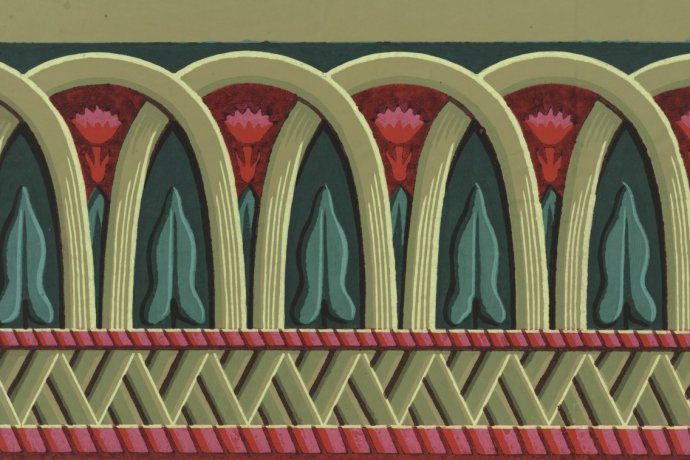There are two reasons for such work: first, it is increasingly apparent that Europe’s own intellectual history cannot be told in isolation from its encounters with other parts of the world. Second, Europeans will urgently need to understand the forms of self-knowledge developed across time by other societies.
Main coordinator : Sunil Khilnani, King's College London
This focus group has already held four workshops from 2007 to 2011. A collaborative volume is now being prepared. Thematically, the volume will centre on the tension between action and political thought as refracted in ideas/conceptions of power, as they arose in the Indian and European context.
While this is a relatively developed and sophisticated field of research in Europe (with the focus usually directed at European traditions), there has been little sustained work of this kind in the Indian context, and on the interactions between European and Indian intellectual traditions. There are two initial and obvious reasons for such work: first, it is increasingly apparent that Europe’s own intellectual history cannot be told in isolation from its encounters with other parts of the world. Second, Europeans will urgently need to understand the forms of self-knowledge developed across time by other societies: in order for Europeans to better manage their own position in a rapidly changing global order, they will require a more firmly grounded sense of how some of the major non-European members of the world order have come to see themselves and the world in which they seek to achieve their aspirations. The study of the intellectual history of political ideas, of civilizational beliefs about politics and political possibility, is thus hardly an academic luxury: in fact, it has a direct relevance for current politics and policy.
Modern Indian Intellectual History
The first meeting of that focus group was held in Berlin in 2007.
Conceptions of power and its limits I - Kesroli, January 2009
The second meeting of the IEARN Intellectual History-Political Thought group focused on the theme of ‘Conceptions of Power and its limits’. The consensus at the previous meeting (Berlin 2007) was for an historical approach designed to identify the foundations of modern Indian political thought, an approach that looks at the interaction between political ideas and ’languages’ on the one hand, and institutions and practical contexts on the other. The concept of power, it was agreed, could lend itself handily as an initial focus of inquiry for the group.
Presentations made by participants ranged across a broad canvas, and themes addressed included: forms of dispute resolution in eighteenth century Maharashtra, ideas of Mughal sovereignty and empire during 1857 and its aftermath, Indian liberalism and power, Gandhi and political pluralism, attempts to construct an Indian political tradition, debates about the uses of violence and terrorism in early twentieth century India, political traditions and their endings, and notions of statesmanship and political leadership in post-independence India.
Conceptions of Power and its Limits II - Berlin, April 9-10, 2010
The schedule of the workshop was organised with the following main themes:
- Power and Self-Creation: Recovery, Revival and Reconstruction of Political Traditions
- The Social and Political Sources and Limits of Power
- Power and its Languages: Translatability, Simultaneity, and Transformation of Concepts and Ideas
- Power and Political Judgment: The Ends of Modern Indian Political Thought?
The Identity of Modern India Political Thought: Power, Politics, and the Political - Uppsala, September 16-17, 2011
That meeting aimed at working on the possible publicatiopn of a collaborative volume on The Identity of Modern India Political Thought.
Selected publications for this focus area
- BAXI U. Constitutionalism as a Site of State Formative Practices (2000)
- BRYDE B. Transnational democracy (2011)
- CASTELLS M. The Information Age (2000)
- CASTELLS M. Rise of the Network Society (2009)
- CASTELLS M. Networks of Outrage and Hope (2012)
- CHATTERJEE P. The Politics of the Governed (2004)
- CHATTERJEE P. Lineages of Political Society (2011)
- CROUCH C. Post-Democracy (2004)
- CROUCH C., Strange non-death of neo-liberalism (2011)
- ELLUL J. The Technological Society (1964)
- FEENBERG A. Between Reason and Experience: Essays in Technology and Modernity (2009)
- FRASER N. Rethinking the Public Sphere, Social Text (1990)
- FRASER N., HONNETH A. Redistribution or Recognition: A Philosophical Exchange (2003)
- GHAI Y. Autonomy and Ethnicity: Negotiating competing claims in multi-ethnic states (2000)
- GINSBURG T. Courts and Democracies: A Review Essay (2012)
- GRIMM. Does Europe Need a Constitution? (1995)
- HABERMAS. Does Europe Need a Constitution? Remarks (1995)
- HAYEK. Economic Conditions of Interstate Federalism (1939)
- HIRSCHL R. The Judicialization of Mega-Politics and the Rise of Political Courts (2008)
- LACLAU E. On Populist Reason (2005)
- LATOUR B., WEIBEL P. (eds.). Making Things Public: Atmospheres of Democracy (2005)
- MOUFFE C. On the Political (2005)
- RESNIK J. Globalization(s), privatization(s), constitutionalization, and statization: Icons and experiences of sovereignty in the 21st century, Int J Constitutional Law (2013)
- ROSANVALLON P. Counter-Democracy (2009)
- STREECK W. Crisis in Context: Democratic Capitalism and its Contradictions, in: Streeck / Schäfer (eds), Politics in the Age of Austerity (2013), pp. 262-286
- VISMANN and WINTHROP-YOUNG Files: Law and Media Technology (2008)
- WEBER M. Economy and Society (1925)
- WEILER. Does Europe Need a Constitution? Demos, Telos and the German Maastricht Decision (1995)
